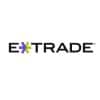Pension funds in Australia have traditionally taken a less confrontational approach when it comes to corporate disagreements. They prefer to work quietly behind closed doors to bring about change. However, a recent development surrounding the US$10.50 billion takeover bid for Origin Energy by a consortium led by Brookfield Asset Management suggests that pension funds are becoming more assertive.
Origin Energy shareholders are set to vote on the bid next week, with AustralianSuper, the largest pension fund in the country, publicly opposing it. They argue that the deal undervalues Origin’s assets at a time when the energy transition is gaining momentum. In a bold move, AustralianSuper has even increased its stake in the company, making it more difficult for the transaction to be approved.
This situation raises questions about whether pension funds now have a strategy in place for challenging company boards that they believe have made missteps, or if this is simply a case of a fund objecting to a specific transaction. AustralianSuper manages over 300 billion Australian dollars, so their stance carries weight.
UniSuper’s Chief Investment Officer, John Pearce, commented that pension funds are likely to play a more active role in situations involving mergers and acquisitions. While he did not specifically mention the Origin deal, Pearce emphasized that the industry’s consolidation is likely to drive more assertive actions from larger funds.
The landscape of Australian pension funds is shifting, and it seems that the era of quiet diplomacy may be coming to an end. As pension funds become more assertive, corporate boards will need to navigate this new dynamic in order to successfully navigate future deals.
Australia’s Evolving Pension Sector
The pension sector in Australia has undergone significant changes in recent years. While the number of funds has decreased due to several combinations, the amount of assets they manage on behalf of their members has significantly increased. Additionally, some pension funds have shifted their focus towards more strategic investments, holding larger stakes in a select number of companies.
According to KPMG, three pension funds had surpassed A$150 billion each in assets under management by June 2022.
The rise of mega funds, like the Australian Retirement Trust – a result of the merger between Sunsuper and QSuper, now managing a staggering A$260 billion for 2.3 million members – may lead to increased influence on board decisions.
“The significant ownership stakes held by these major players in listed companies will likely make them play a more active role in corporate activities,” noted Pearce.
UniSuper, for instance, has already exerted its influence on deals in the past. When a consortium of fund managers, including QSuper and AustralianSuper, took Sydney Airport private last year, UniSuper, being the largest shareholder, had to fold its 15% stake into a newly created unlisted company as a condition of the deal.
However, Pearce emphasized that UniSuper considers itself a “responsibly engaged investor” rather than an activist investor.
“Our approach is to ensure that all necessary criteria, such as governance and strategy, are met before taking significant positions,” Pearce explained. “We’re not seeking fundamental changes or intending to turn things around when we acquire meaningful stakes.”








Leave a Reply